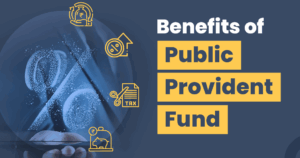A healthy cash flow is the lifeblood of a small business. It’s critical for your success and long-term survival. It indicates the stability of your business and allows you to invest in more revenue-generating opportunities. However, things can happen, circumstances can go wrong, and you could be left with inconsistent or delayed cash inflow.
Late or unpaid invoices are one of the major contributors to the financial instability of a small business. It can cripple your small business and hinder your growth. Many business owners hesitate to take the right action, fearing the complexities of debt collection and its associated stigma.
However, working with a positive, small business debt collection agency can ease your stress. Accounts Receivable Collections and recovery efforts are critical aspects of business operations. This comprehensive guide provides in-depth insights into the collections process. It also offers actionable steps, call scripts, and email templates to help you recover your payments ethically, efficiently, and professionally before you partner with a small business debt collection agency. Let’s begin.
Understanding Business Debt
Business debt is any financial liability another business or commercial venture owes you. According to the statistics, around 17% of small and mid-sized businesses have outstanding debt between $100,000 and $250,000. It can include credit card balances, business loans, purchases made on credit, etc.
Businesses may take on debts for investment purposes, expansions, or to meet operational expenses. Reasons for late payments could include cash flow challenges, improper communication, disputes over the delivered goods or services, administrative inefficiencies, and inaccurate invoicing.
Understanding Business Debt Recovery
Consistently unpaid invoices can strain your business. Recovery efforts help your small business maintain its financial well-being. Collecting business debt involves pursuing past dues or default funds by a company while staying compliant. The process might seem intimidating, but it’s the only way to reduce the risk of writing off bad debts, ensure liquidity, and support long-term stability.
The Debt Collection Process
The B2B debt recovery process can involve several steps to retrieve outstanding payments. Here’s a quick look into what the process might look like and to provide a starting point if you’re looking for guidance:
First, the lender, i.e., your company in this context, must contact the debtor, informing them about their debt and potential late payment consequences. You can reach out through a call, email, text message, private message on social media, or send letters.
It’s important to monitor communication and take legal steps if necessary. If an account is charged off (or declared unrecoverable), you may involve a third party, like a small business debt collection agency, and sell the debt to them at a fraction of the balance owed to you.
But remember that you can only escalate the debt if you have given multiple reminders and sent a collection demand letter, yet the debtor remains unresponsive or doesn’t repay.
From there, the collection agency and the debtor will figure out an agreeable payment plan. If the debtor still doesn’t comply, the agency can sue them, obtain a judgment, and enforce it through wage garnishment, bank levies, and more. It’s the best way to recover outstanding payments for creditors. But there are certain costs attached to these escalation resources.
How much does it cost to send someone to collections? Many agencies charge a flat fee, while others take a percentage of the recovered amount. Consider some cost-effective follow-up measures on these accounts, like sending out reminder emails and offering flexible payment plans, before involving an agency. When you do get third-party help, understand their charges to maintain transparency.
Effective Debt Collection Strategies
To create a solid foundation for financial stability, mitigate challenges, and ensure a seamless debt collection process, here’s what you must know:
1. Establish Clear Credit Policies
Before extending credit, ensure having defined terms for credit approval, a proper repayment schedule, and consequences of late payments. You must also conduct thorough credit checks before offering credit to new customers.
2. Leverage Technology
Once you have extended credit and the repayment schedule is imminent, leverage technology to streamline processes. Use proper accounting and CRM software to track these invoices. Get help with automating reminders and monitoring client payment behavior to identify slip-ups right in time.
3. Communicate Effectively
It is important to maintain a professional and calm demeanor. Stay open and communicate professionally so debtors understand that you aren’t a threat to them. Today’s accounts receivable collections processes are different from traditional approaches. Now, businesses are resorting to positive collection practices so these financial challenges can lead to constructive solutions.
4. Document Everything
No matter what you communicate and where you do so, it is important to document everything. Keep track of all communications, agreements, and payment terms, which will be handy if disputes escalate.
5. Train Your Team
Equip your in-house team to negotiate effectively. Take time to think through what you want and the alternatives. Be clear, professional, concise, and compassionate yet assertive to support your position and reach the desired resolution. When needed, your staff must also know how to handle conflicts diplomatically.
Crafting the Perfect Collection Letter
Crafting a collection demand letter is the first step in recovering outstanding payments. It’s a vital tool and an official notice to help enhance payment outcomes.
A collection demand letter encourages the debtor to act in the desired manner. So, you should always sound professional and be direct, clearly stating the amount owed, offering various payment methods, providing a clear call to action, and stating non-payment consequences. It eliminates the guesswork from the process and maintains clarity.
Here’s A Generic Call Script
When calling for recoveries, you’d want to balance assertiveness with empathy and sounding direct. Here’s a quick example of an effective debt collection script; you can tailor it according to your situation for best results:
Legal Considerations
B2B debt collection laws can be intricate. Not everyone can understand the nuances and cater to those specific rules and regulations. However, understanding the legalities helps you stay compliant and avoid unnecessary disputes.
Remember, different states have varying statutes of limitations, so it is best to consult a business-to-business collection agency to understand local regulations. To build a strong case, you should also maintain copies of all agreements, invoices, and communications.
Avoid aggressive or misleading recovery tactics to preserve your reputation and relationships. Ensure all communication complies with the relevant privacy laws. Also, respect the statutes of limitations when collecting business debt. Whenever needed, engage a small business debt collection agency for legal advice to avoid costly mistakes and prevent harassment and abuse.
Working with Collection Agencies
Partnering with an agency that specializes in collections can prove invaluable. It can supplement your efforts to recover outstanding debts ethically and effectively. This is especially valid when your internal efforts fail or do not offer the desired results.
Someone with a proven track record in your industry can be your go-to choice. They can understand the nuances and challenges involved in the process and bring the necessary expertise, resources, and specialized tools for successful recoveries. It saves your business time, effort, and money, which you can spend on other crucial tasks. In addition, their expertise allows them to maintain your company’s reputation and client relationships while balancing customer goodwill and financial recovery.
Other things to look for when choosing a debt collection agency include:
- Positive online reviews
- Success rate
- Compliance with relevant laws and regulations
- Proper certifications and accreditations
- Reporting methods/ frequencies
- A transparent fee structure
- Conflict resolution strategies
- Data protection protocols
Agencies using advanced tools and technologies can also help you make a difference as they can invest in data security measures, align with industry standards, and avoid fines or penalties. Technology allows for rapidly analyzing vast amounts of data, automation efficiencies, utilizing digital communication channels, making data-driven decisions, improving compliances, proving cost-effective, and enabling comfortable and empathetic interactions.
Your chosen agency must also use non-aggressive, professional, and respectful approaches to protect your reputation and offer help with a range of services like international collections, legal support, or dispute resolution.
This way, you should be able to hire experts who align with your unique values and recovery needs.
Example of a Successful Recovery
B2B debts can be of different types. Businesses can be involved in unpaid invoices, loans, contractual obligations, and trade credit. Here is a quick example of successful business debt recoveries for better understanding:
Scenario: A small financial consultancy provided a $10,000 business loan to a startup. The startup defaulted on repayment. The consultancy attempted to recover the amount owed, but the startup remained unresponsive. The consultancy legally escalated the matter to a small business debt collection agency with whatever resources they had to prevent any more losses.
Role of the Agency: The agency reviewed the contract, analyzed the startup’s financials, and, with persistent and strategic efforts, identified ways for partial repayment. The B2B debt recovery agency mediated between the startup and the consultancy to propose a structured settlement plan that helped avoid costly litigation and aligned with the startup’s ability to pay.
Outcome: The agency secured a settlement of 80% of the outstanding loan over four months. The startup even committed to paying the remaining balance over a few more weeks. This professional intervention helped the consultancy recover a significant portion of the debt without damaging its professional rapport while preserving the cash flow and allowing both parties to resolve the matter amicably.
To Conclude
Running your small business is about managing transactions and maintaining relationships. Understanding the consequences of unpaid invoices for your business, partnering with a top-notch small business debt collection agency, and knowing how to send someone to collections can make a huge difference in aiding business growth.
Remember Accounts Receivable Collections don’t have to be overwhelming. You can protect your cash flow with the right knowledge, support, and strategies. Contact a reputed and reliable agency for collecting business debt to maintain respectful engagements, leverage innovations, and seamlessly recover dues.





